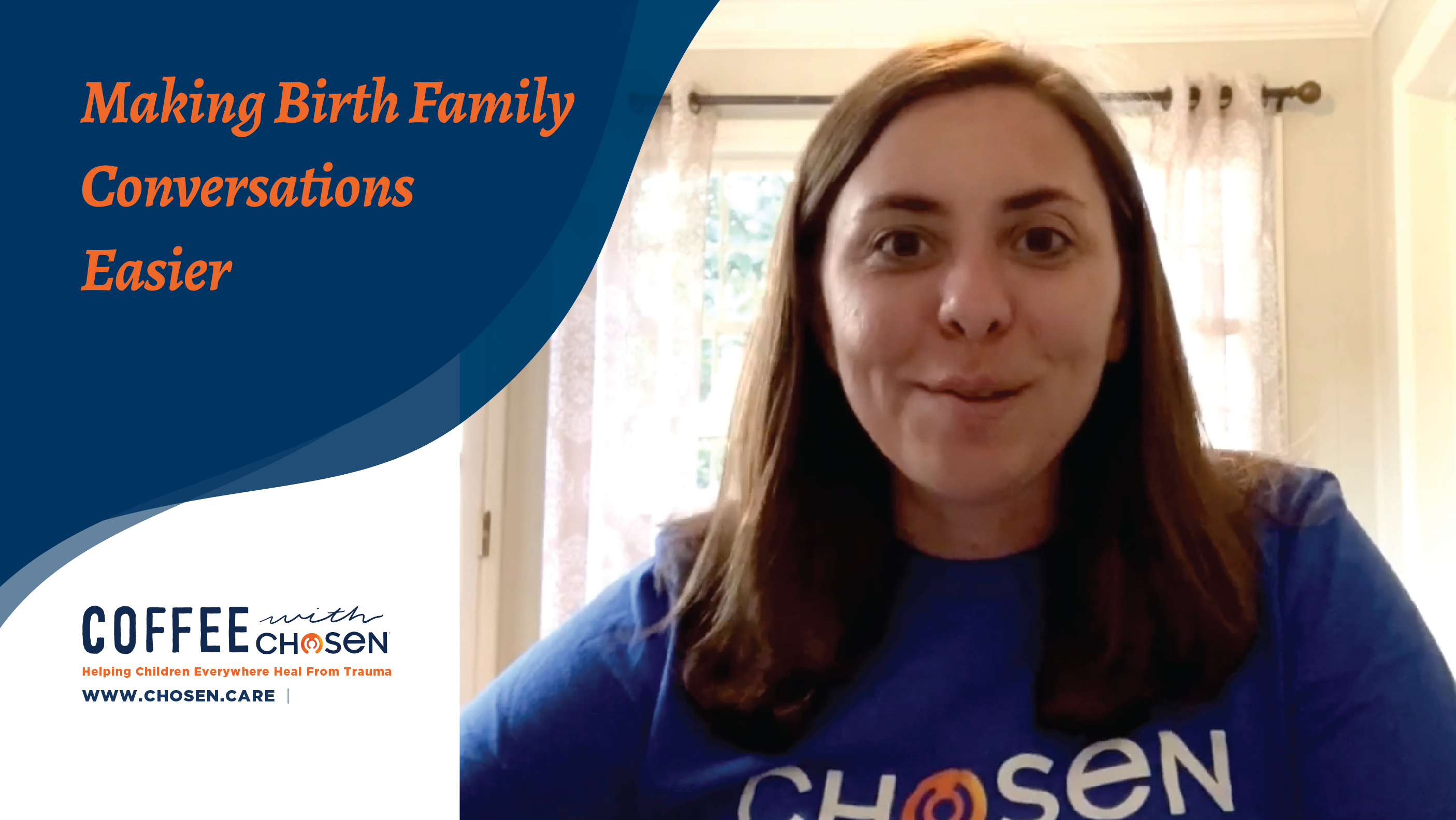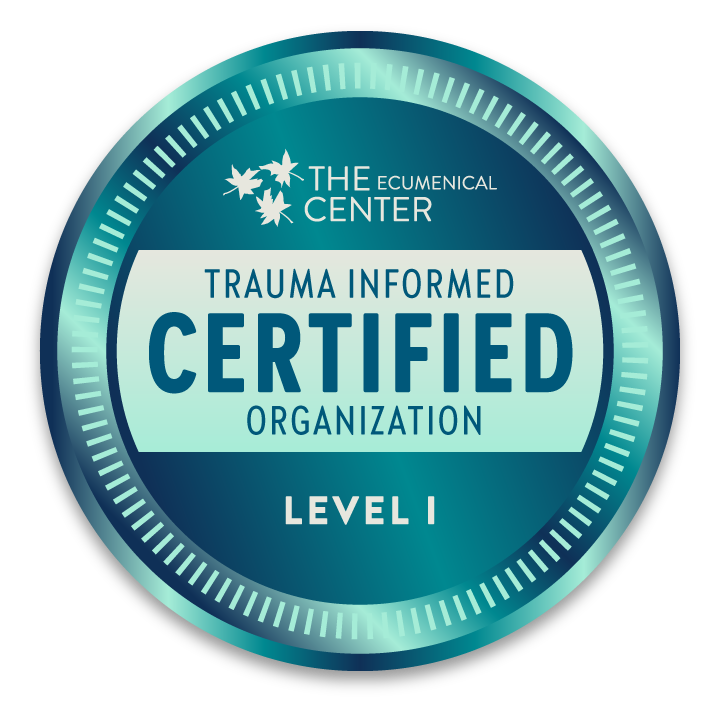As foster parents and adoptive parents, it may be difficult to talk to our children about their birth families. If you’re nervous or not sure where to start, lean into Monica’s tips for caregivers on this subject.
Making Birth Family Conversations Easier
Hello, families. Welcome to Coffee with Chosen. My name is Monica.
This week, since we’re talking about strengthening our children’s stories, it’s all about communication. But what about the kind of communication that occurs without words? It’s been estimated that 60-90% of communication is nonverbal. Our eye contact, body posture, hand gestures, and facial expressions say a whole lot more than our words. It seems so.
When it comes to talking to our children affected by trauma about their stories, we can carefully prepare the facts we share and a sensitivity with which we say the words. But if we do so while pacing nervously, or with a painful expression on our face, we aren’t really sharing the story in a nurturing way. Or what about when our child asks us one of those out-of-the-blue traumatic questions about their story? Will we be prepared to react calmly and think before we speak?
I’ve heard a story about a delightful young man that had always been told he was adopted but had never asked for specifics about his story. And his adoptive parents never volunteered the information. One day as a teenager, he approached his adoptive mother with a question about his birth mother. His loving mother was so shocked by the question, she twisted her face into a horrific expression of hurt, and he immediately said, “Forget it! I’m so sorry! Please just forget I asked anything!” and they never spoke about it again. How tragic.
So how should we handle it? Let’s think about how we would prefer to interact with someone who had challenging information to share with us. A relaxed voice, soft eyes, and a calm body would be most welcomed. In such a personal moment, there’s no need to be syrupy sweet or overly enthusiastic. Nor is there a need to utilize a dramatically serious tone. It is our child’s story, not ours, and we just need to give them the facts with empathy and compassion in a straightforward way.
Worried about how it will sound? How you’ll look? One of the best things that we did with our boys when they were young was continually practice telling them their stories. When we rocked them in the rocker, when we changed their diapers, we just practiced telling them about how they were adopted in love and shared bits of their birth families’ stories. Did they understand? Of course not. But it made us more comfortable telling the story. So that when the time came when they would understand what we were saying, we had practiced often enough, we knew how it would come out and how we looked when we told it.
Are your kids older? Are you nervous to talk about their stories with them? Practice on your own when you know they won’t be around to hear. Look at a photograph of them and practice looking into their eyes. Check your facial expression in the mirror. Is it gentle and soft? You want to be genuine and in the moment when you share this story, not overly rehearsed. But take visual cues from your child about when to stop and listen to them talk. Don’t just blaze through it.
As your child grows more, it is developmentally appropriate to share a little clarification for you. Though we aren’t going to be perfect at this, far from it. However, we owe it to our precious children to give them their story in a way that makes them feel at ease when we speak to them. When they know that we are safe to talk to about it, they’re more likely to feel more comfortable continuing the conversation in a healthy way. As they grow, we just want to be open and approachable.
Now that’s not to say that we aren’t allowed to feel the intense emotions associated with this difficult job. I know there were many times after I had a calm conversation with one of my children about their story, and when I was out of their sight and hearing, later on I bawled like a baby. We are human after all, and in a perfect world these tragic events would never happen. But if I had come emotionally undone in front of my child, they would have felt as most children do. That they had caused us to feel that way and then they might be more reluctant to discuss it the next time.
So what do you need to do with this information today? Think about how you will physically respond when your child asks a tough question. Prepare yourself now so that you can be ready to give them the gift of a calm voice and gentle demeanor as they learn more about their story. When your child feels secure with you to ask tough questions, it lays a beautiful firm foundation for navigating the complex feelings that will come with the story.
Thanks for joining us today for Coffee with Chosen. For more information about strengthening your child’s story, visit Chosen Care.













